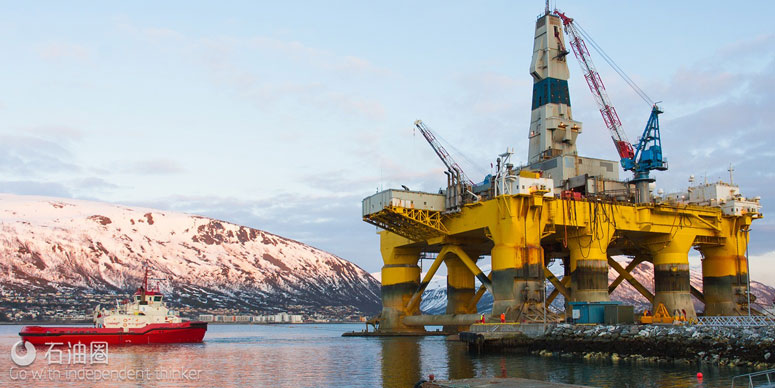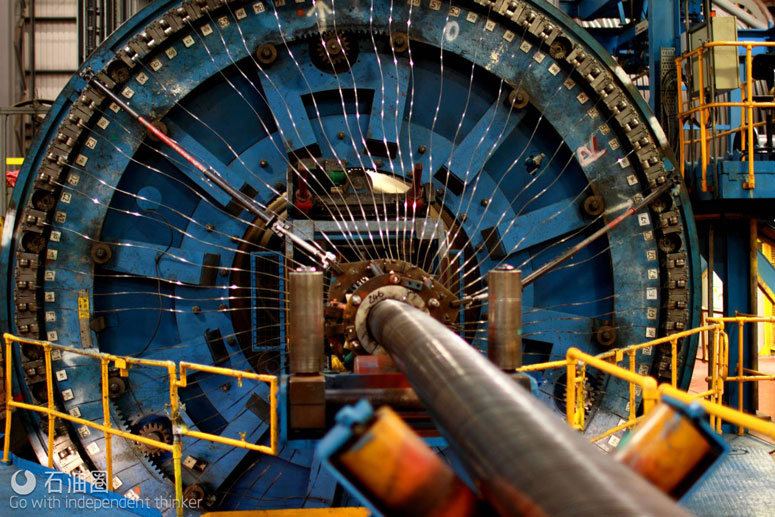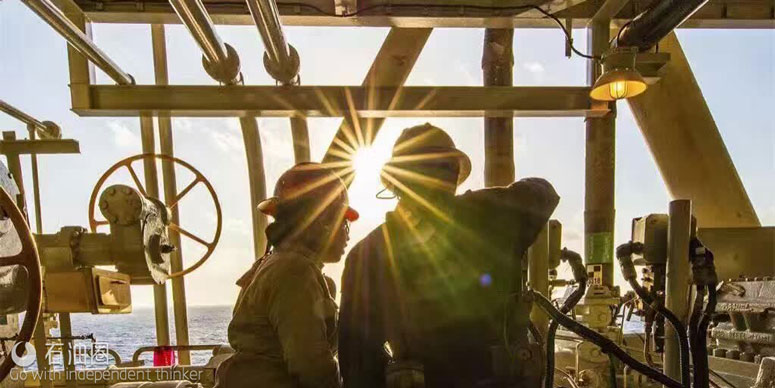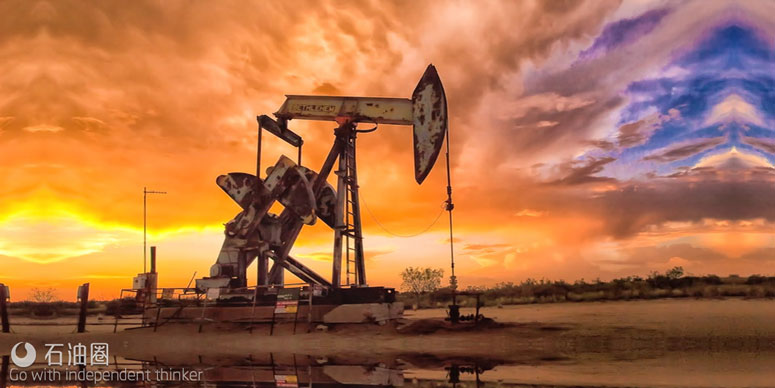How many years of recoverable oil do we really have?
I’ve seen different websites say we have 53.3 years left, others say 40 and even 256 years? It also depends on consumption I believe also. I need to know for real (with real data if possible) on how many years we have left. Thanks.
Mike Shellman answered 2 days ago
1.7 trillion barrels of oil and condensate (C+C), proven (P1) reserves, down for the first time since 1999 (World Oil Magazine, December 2016). At 83G BC+CPD world consumption, that equates to 56 1/2 years.
Everyone lies about their proven reserves; KSA, Exxon, China, Pioneer and Continental, everyone. So I personally don’t hang my hardhat on those numbers at all. They are likely much lower. The biggest lie of the past decade is the amount of unconventional shale oil resources that can be recovered in the US. Those lies are made totally without regard for costs, dismal economics and managing enormous amounts of debt.
For 40 years we in America have criticized the Middle East for lack of reserve transparency, now the stuff going on right here in the good ‘ol US of A, in the shale oil patch, is way worse.
Probable (P2) reserves reported by everyone only has a 50% probability of occurring and possible (P3) reserves, with a 10% probability is ridiculous to even consider. I recently heard the term “undiscovered technically recoverable reserves;” what in the hell does that mean? If they are not discovered yet, they are not reserves.
90% of the answers and comments you’ve received so far, Michael, from the oil community, refer to the wonders of improving technology. That’s curious to me. Implementing old technology more efficiently, like horizontal drilling and stage frac’ing, has improved, but its still old technology. People put far too much hope in improving technology because it makes them feel better about the future. Walking rigs around on pads is cool, however.
The oil industry is broke right now, where is the R&D money coming from for “new” technology? What is left, even of P1 reserves, is going to be very, very expensive to extract so technology better get to lowering costs mucho pronto.
I am not sure most folks, even in the oil industry, understand fully the difference between P1 and P2 reserves and I can assure you that very little consideration is given to costs and affordability when people say “150 years,” or “unlimited” reserves exist. And where is all this P2 and P3 oil going to come from exactly? The world’s known producing basins have been hammered the past 100 years…now we’re squeezing resource formations that supplied the sediments in those known basins, like blood out of a turnip. What’s next after shale oil? Deeper is gassier, not oilier.
I say we are going to be in a bind in 20 years as to whether we can affordhydrocarbons and our kids are going to be in a nine-line-bind someday, sooner rather than later. Our kids, however, generally loathe the hydrocarbon industry, believe strongly in climate change matters and will ALL mostly be urbanites and not use transportation fuel anyway. In the next 20 years the world is going to make big strides in moving about, without oil.
The era of fossil fuels is winding down.
Michael Rigsby answered 3 days ago
The key word in your question is “recoverable”. As technology evolves, and we have access to more and more oil, the definition of “recoverable” changes.
Nick Gjergji answered 3 days ago
I will answer on a simple way. It is estimated that the world has 4.5 trillion barrel oil in place (OOIP) on conventional oil reservoirs. From these conventional oil reservoirs, the world has produced and consumed around 1.1 trillion barrel oil, which give us an actual oil recovery 24.5%. I will presume that the recoverable oil from conventional oil reservoirs will arrive around 45%. This give us that the remaining recoverable reserves from conventional oil reservoirs is around 925 billion barrels.
It is estimated that the world has 9.5 trillion barrel oil in place (OOIP) heavy oil and bitumen. I will exaggerate that the ultimate oil recovery from these reservoirs will arrive 25%, so the ultimate recoverable oil reserves from these reservoirs will be around 2.375 trillion barrel oil.
The conventional reservoirs and heavy oil and bitumen reservoirs have around 3.3 trillion barrel oil recoverable. The world consumption on oil and liquids is around 95 mm bbld, and I will consider that only 90 mm bbld oil will be consumed from the world. I consider here that the efficiency on oil consumption will increase. Considering these assumptions, I will say the world consume around 32.85 b bbl oil each year.
Considering that the world oil consumption will be flat on the future, with all assumptions we can calculate that the world has 100 years recoverable oil.
New technologies will increase the recovery factor from brown conventional oil reservoirs and from heavy oil and bitumen reservoirs. I will assume 10% increase on oil recovery, but higher values are possible and probable. These assumptions will give us 1.4 trillion barrel oil recoverable by using advanced technologies. Considering consumption 90 mm bbld we have oil for more than 15 years. This increase the world oil reserves on 115 years.
On addition to this, we must include oil from developing unconventional tight oil reservoirs. This will increase even more the time the world reserves will last. The actual technologies produce only 5-10% of oil from these reservoirs. Technology will increase the recoverable oil from these reservoirs as well. Based on EIA estimations, unproved technically recoverable oil from tight oil reservoirs is 418.9 B bbl (see https://www.eia.gov/analysis/studies/worldshalegas/) This will give us another 12 years considering 90 mm bbld oil consumption.
I will say that the world has 125 years oil from combining conventional and unconventional oil reservoirs and heavy oil and bitumen. The recovery of these oil will require trillions of dollars investment and many jobs. This will produce and trillions of CO2 but a part of this CO2 will be not released to atmosphere. I believe this CO2 will be used on increasing the recovery factor, and a part will be captured and sequestered underground.
Joe Schindler answered 3 days ago
Consumption/demand and price/profit are the biggest controls on how long our oil supply will last. There is a fairly finite amount of oil left for us (we’re not making a lot of new oil every day); but how rapidly we draw it out and how profitable it is to produce will control which is the last drop.
If oil prices drop (say a magic replacement becomes available); eventually it won’t be worth producing; and we’ll run out. If oil prices continue to rise; we’ll work harder to find more. If prices rise above the production cost of what is economically recoverable at today’s prices; it will be economical to go after more difficult to recover reserves.
Beyond the obvious threat from electric cars in reducing our need for oil as fuel; there will be the need for plastic and fabric to build them with. We’ll also need roads to drive them on. That could drive demand for a while.
There is enough oil on this planet to intoxicate/pollute ourselves to extinction. New deposites are continuously being discovered. Some have even suggested that oil may not necessarily be fossil fuel in origin but a natural occurring phenomenon created from methane, heat, pressure and time, located just beneath earth crust. Which explains why some reserves have been found in ancient meteorite impact sites.
Martin Fournier answered 3 days ago
There is enough oil on this planet to intoxicate/pollute ourselves to extinction. New deposites are continuously being discovered. Some have even suggested that oil may not necessarily be fossil fuel in origin but a natural occurring phenomenon created from methane, heat, pressure and time, located just beneath earth crust. Which explains why some reserves have been found in ancient meteorite impact sites.
Kirby Mohr answered 3 days ago
The answer is that nobody knows and with current technology it isn’t possible to determine. There are just too many unknown factors to be considered. In the late 1960’s I used the numbers published in the Oil and Gas Journal and determined that there was about 12 years left. I have been proven wrong on that, and I’m glad. I think the only thing you can be sure about an answer, if you get one, is that it is wrong.
James Hardey answered 3 days ago
I’m not as optimistic. Most of the really big fields are fifty years older or more. Yes, we find new oil reserves every year but I haven’t seen many “elephants” lately. It’s arguable that the low hanging fruit has been picked. Shale and the GOM undoubtedly hold huge reserves but the economics are questionable. I may be bad luck, but I have participated in serveral Hayensville wells and the big money was made by the landowners, not the producer. There is plenty if oil but I’m afraid we aren’t going to be able to afford it.
John Adrian answered 3 days ago
132.5 years if new battery technology is not developed for electric cars. This assumes we will continue to use internal combustion engines for the next 130 years.
732.7 years if the majority of automobiles stop using gasoline in the next 20 years.
Note, under this premise, plastics and other petroleum products will significantly increase in cost.
Simon Klampfer answered 2 days ago
Michael, the answer is pretty simple – it is a matter of price! Reserves are these hydrocarbons, that are economically producible. If the price is high, deposits, that were uneconomic (therefore no reserves), become economic and therefore reserves. There is a limited amount of HC on this planet – if demand goes up and supply cannot match the demand, prices will go up as well, triggering alternative means of energy supply. Then we are back to the year old saying, that oil is being wasted as a source of energy, as so many other things require HC as a basic constituent. In a nutshell – economically we will never run out of oil!
Michael Smith answered 2 days ago
We have an unlimited number of years left although, of course, an alternative energy source will eventually replace oil. Then the oil industry will die and be forgotten.
The real question is; when will the permanent transition to insufficiency occur, when current oil supply will be unable to meet the needs of the day?
Offshore oil, deep water oil, extra-heavy oil and LTOs (currently), in that order, were all steps in this transition after the first great surge in discovery and development prior to World War 2(globalshift.co.uk).
There may be further steps available but pressures from environmental change will probably be the final step. Ignore those ‘years left’ numbers. They are meaningless.


 石油圈
石油圈




